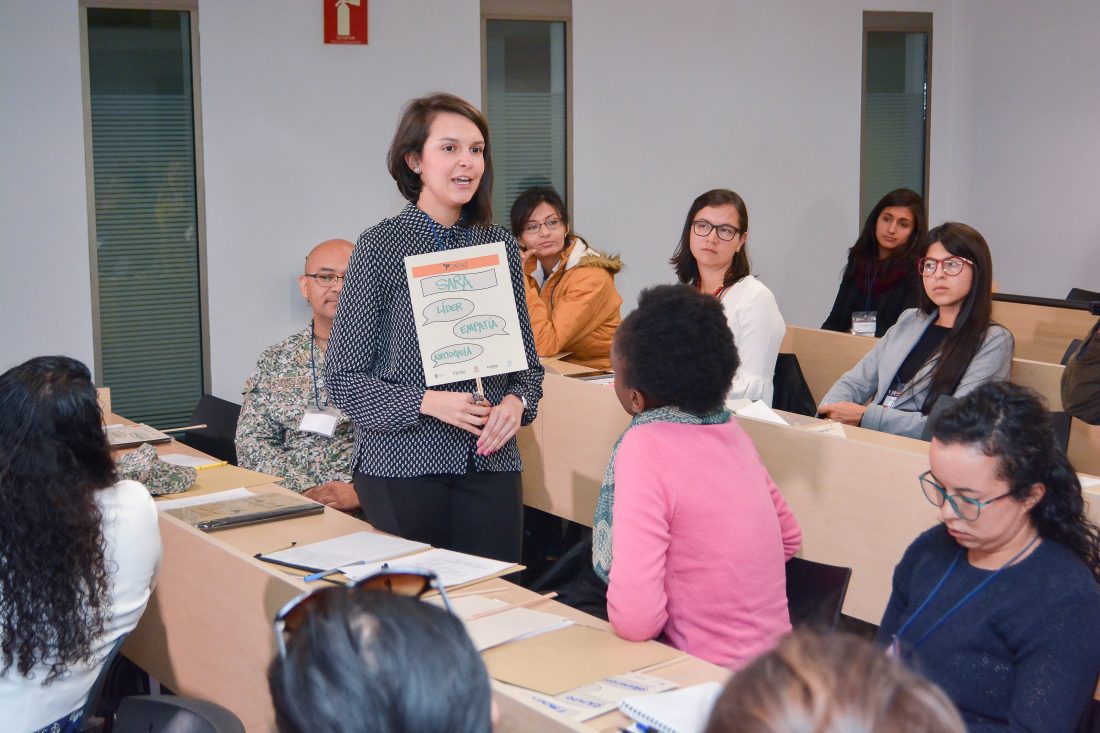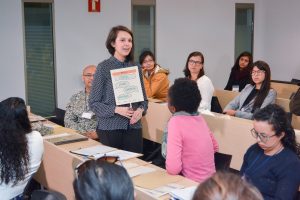
Peace from the bottom up: Academia and territory

By Sara Vélez Zapata
Student
MA in Interdisciplinary Development Studies
Universidad de los Andes (CIDER)
CAPAZ 2017 Winter School – Colombia: Territorial Peace
Current political debate seems to take away our hope of building a country free of political violence. But to get this hope back, all we have to do is to listen to and share the experiences of people who, from their territories, have continued in their arduous task of peacebuilding, and with others who, based within academia and cities, learn from these local experiences to contribute to the theoretical debate and understanding of peacebuilding in Colombia. To recapture my hope was precisely what I did at the Winter School – Colombia: Territorial Peace implemented by the Instituto Colombo–Alemán para la Paz – CAPAZ.
As a group of twenty-six Colombians and four Germans, we learnt the meaning of peacebuilding as well as its challenges. At first glance, initiatives such as the Winter School could fall into platitudes: the importance of the local sphere, the lack of State coordination, or the debate on the structural causes of the Colombian conflict. Instead, for a week, we were able to engage in dialogue, confront theory with reality, and analyse the meeting point of academia with the territories.
Understanding our conflict in order to transform it together
I learnt five important lessons at the CAPAZ 2017 Winter School. The first was that peace and development are not synonymous, but that they mutually depend on one another. From here, the importance of understanding communities’ needs and expectations vis-à-vis the Peace Agreement.
The second had to do with our need to reconstruct ourselves as a society after a long war. This reconstruction is based on understanding the lives of others in our own lives, the moral dimension of territorial peace according to Julieta Lemaitre. Building peace from the bottom up implies an awareness of the complex contexts of community resistance and of the conflicts silenced for so many years.
Sustainable and lasting peace goes beyond the agreements between the Government and the FARC-EP. Territorial peace must find its foundation in a fundamental premise: our goal cannot be a society with no conflict, but rather one in which conflicts are dealt with without violence. As such, we can speak of a post-agreement period rather than one of postconflict. It is about recovering our ability to imagine a society without violence, as John Paul Lederach invites us to do.
As a student of the MA, I learnt, on the one hand, that the challenge of academia is to break down the barriers between disciplines. Interdisciplinarity should transcend the reading of academic texts when it comes to approaching a particular phenomenon. It should focus on opening spaces for dialogue and generating concrete research agendas with a real impact, which respond to the needs of our country’s territories.
On the other hand, our research cannot concentrate on the mere extraction of information from the “study subjects”. Instead, they should recognise the communities as subjects that have resisted the violence and that, in this sense, possess knowledge that is as valuable or even more so than that of academics. To reconnect with the territories would imply the possibility to understand out conflict in order to transform it together.



